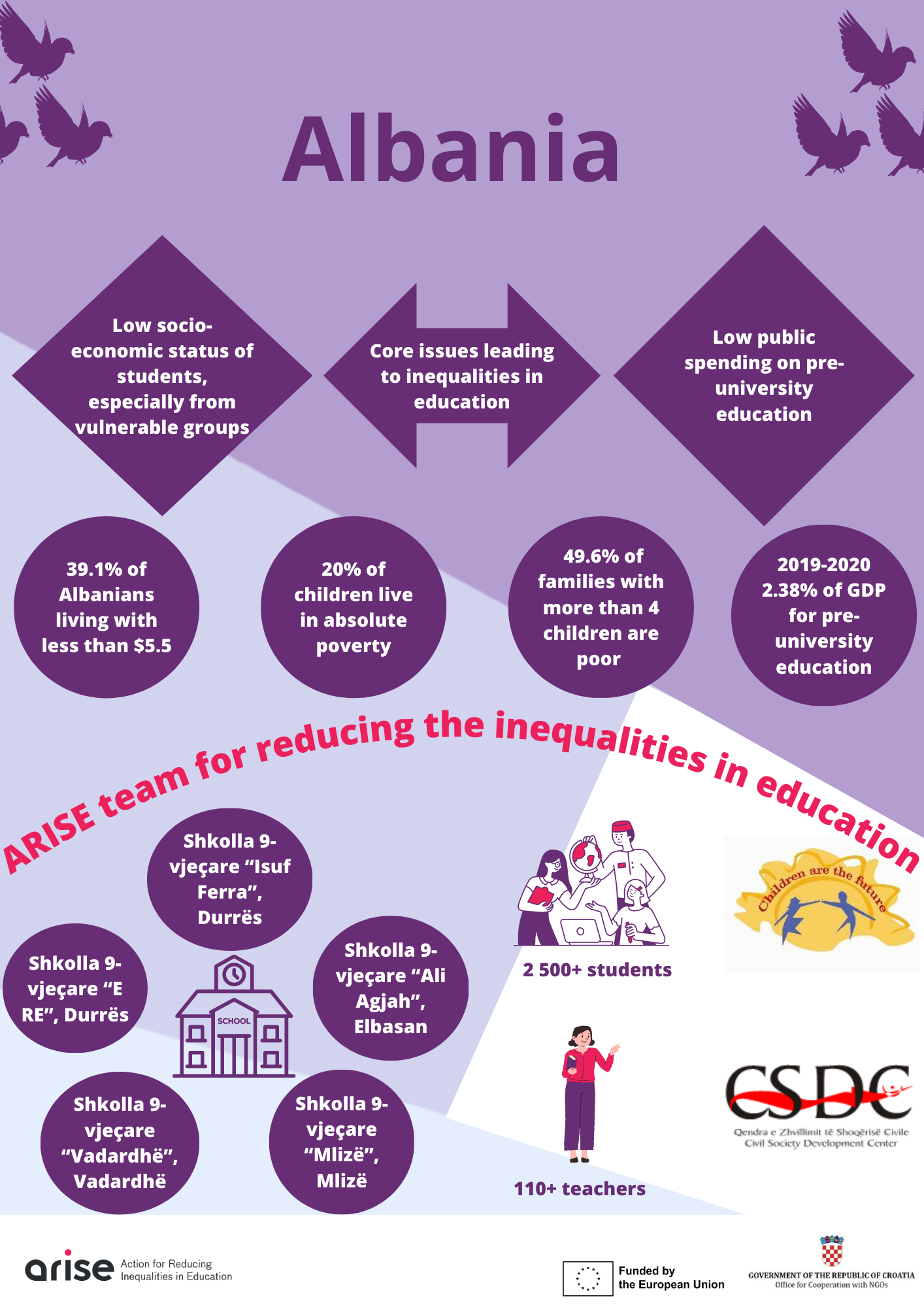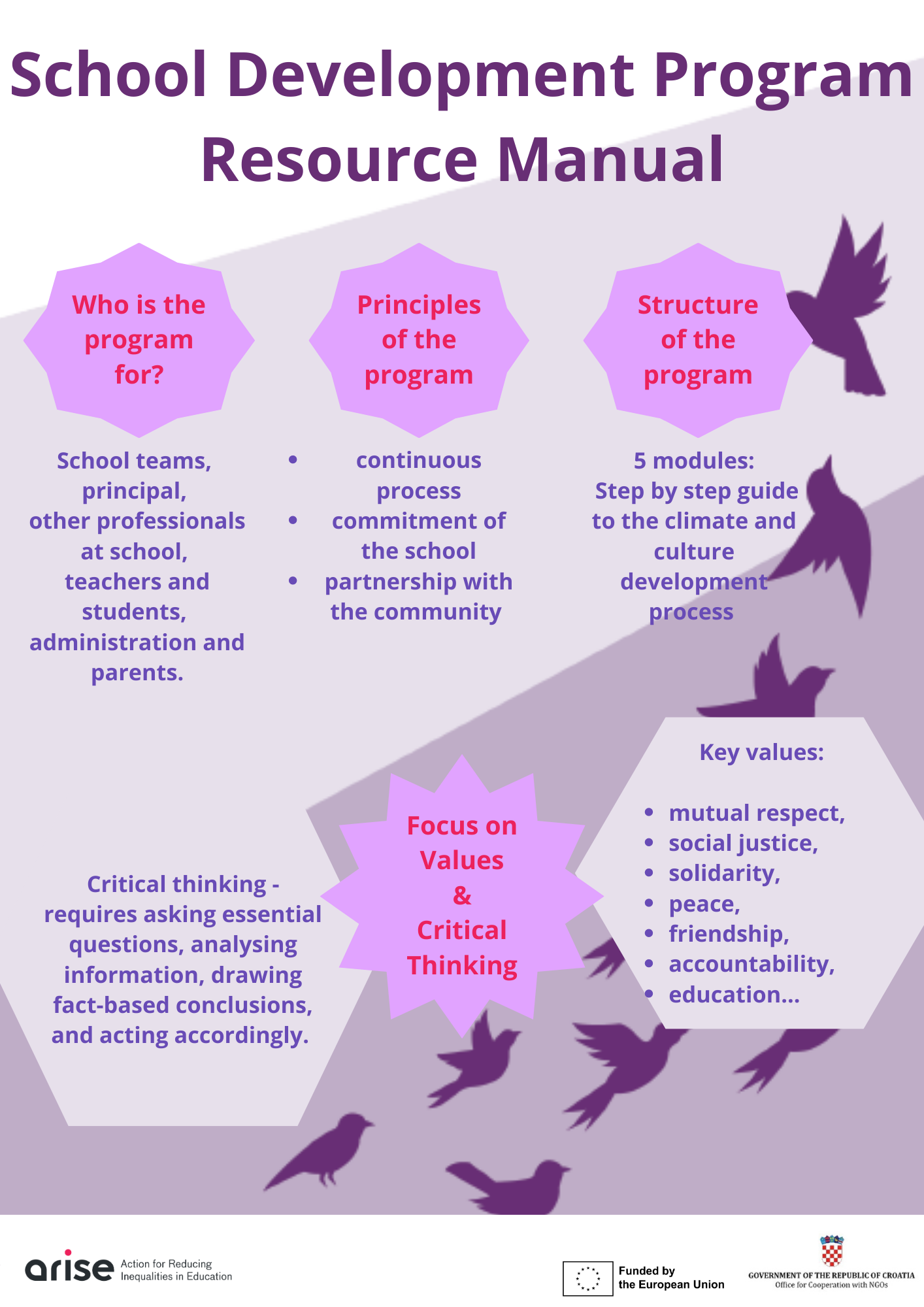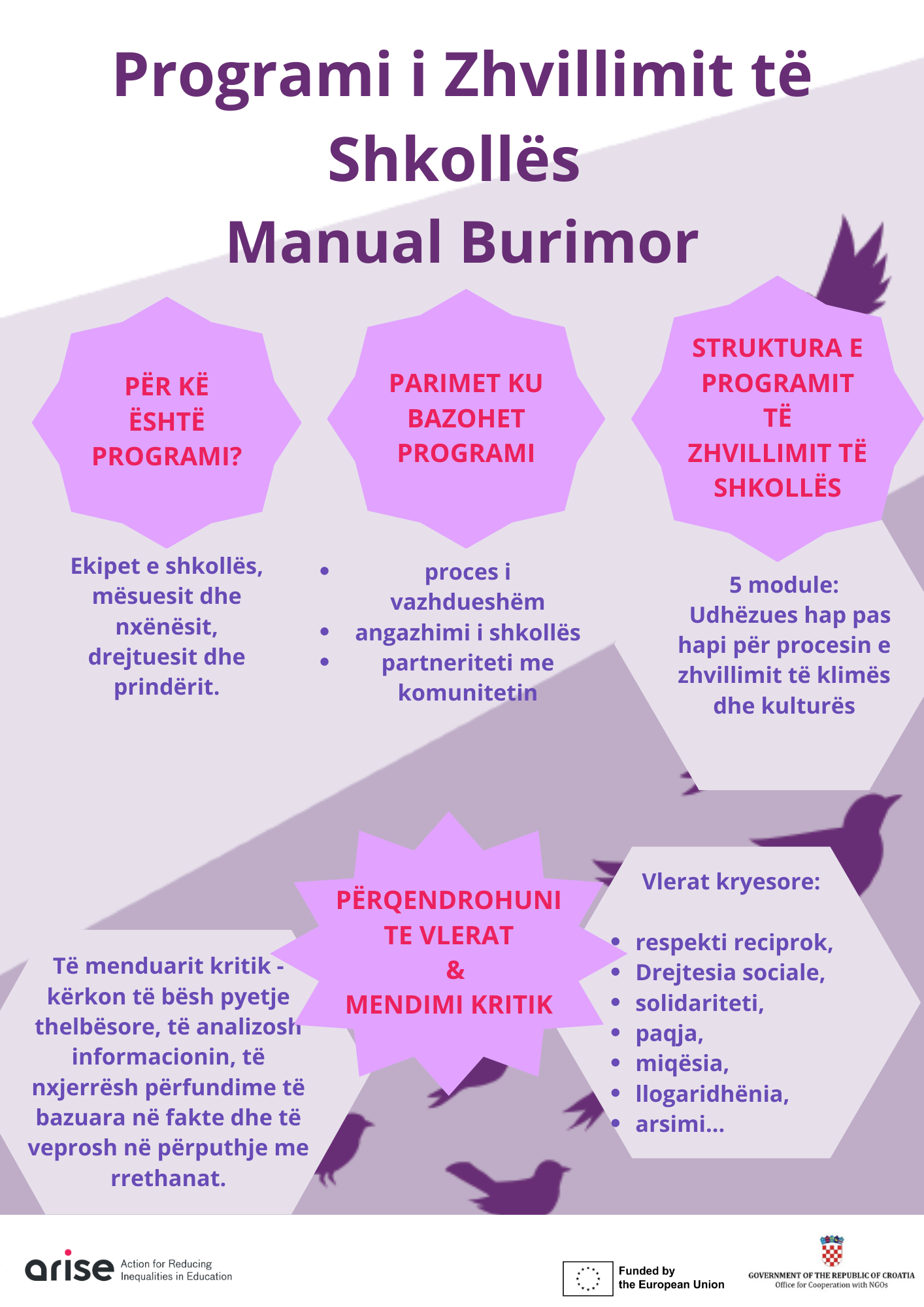Learn more about the main problems identified in connection to the gap between policy and practice in education in Albania and what can be done to address this issue.
In 2021, the national report for Albania, exploring the policies and practices related to education revealed that, even though Albania has undergone several reforms in the education system during the last three decades aiming at a better quality and more equitable education for all, research shows that there is still a gap between policy and practice.
Identifying the core issues
The main problems identified in the report were closely connected to the low socio-economic status of students, especially those from vulnerable groups such as students living in poor families, rural areas, minority groups, and students with special needs.

Another issue identified as a potential cause of the gap between policy and practice was the low public spending on pre-university education. According to data collected in the year 2019 – 2020 it amounted to 2.38% of GDP for pre-university education1 which led to the conclusion that.
In addition, according to the report, serious challenges that need urgent attention and intervention include:
- poor home living and learning conditions accompanied by the inability to meet all children’s needs and school requirements,
- lack of sufficient school resources and facilities,
- lack of comprehensive school-based policies and teacher training to adequately address low SES students’ needs.
For an easier understanding of the complexity of this issue, the policy brief was developed, including a practical overview of the main issues, but also providing promising policy examples and recommendations for further development and improvement.
School-based approach
On the other hand, we have to acknowledge the fact that despite the various factors and circumstances that influence the quality of education, school and teachers have the greatest impact on the final result of the educational process.
Children are the Future, ARISE project partner in Albania dedicated to the promotion of child and youth rights and participation, volunteering, quality and inclusive education, is implementing ARISE School Development Program in five schools from Durrës, Elseban, Mlizë and Vadardhë:
- Shkolla 9-vjeçare “E RE”, Durrës
- Shkolla 9-vjeçare “Isuf Ferra”, Durrës
- Shkolla 9-vjeçare “Ali Agjah”, Elbasan
- Shkolla 9-vjeçare “Mlizë”, Mlizë
- Shkolla 9-vjeçare “Vadardhë”, Vadardhë.
Overall, more than 2 500 students and 110 teachers in Albania are direct or indirect beneficiaries of the step-by-step program focused on school climate and culture development with the main aim to create a safe environment where every child feels accepted and develops the competences, he or she needs for living and creating a society based on universal human values, mutual respect and support.
School Development Resource Manual is available in English, Albanian, Bosnian, Macedonian and Serbian language.
1 Commission Staff Working Document Economic Reform Programme of Albania (2020-2022) p.17 https://data.consi-lium.europa.eu/doc/document/ST-7468-2020-INIT/en/pdf



